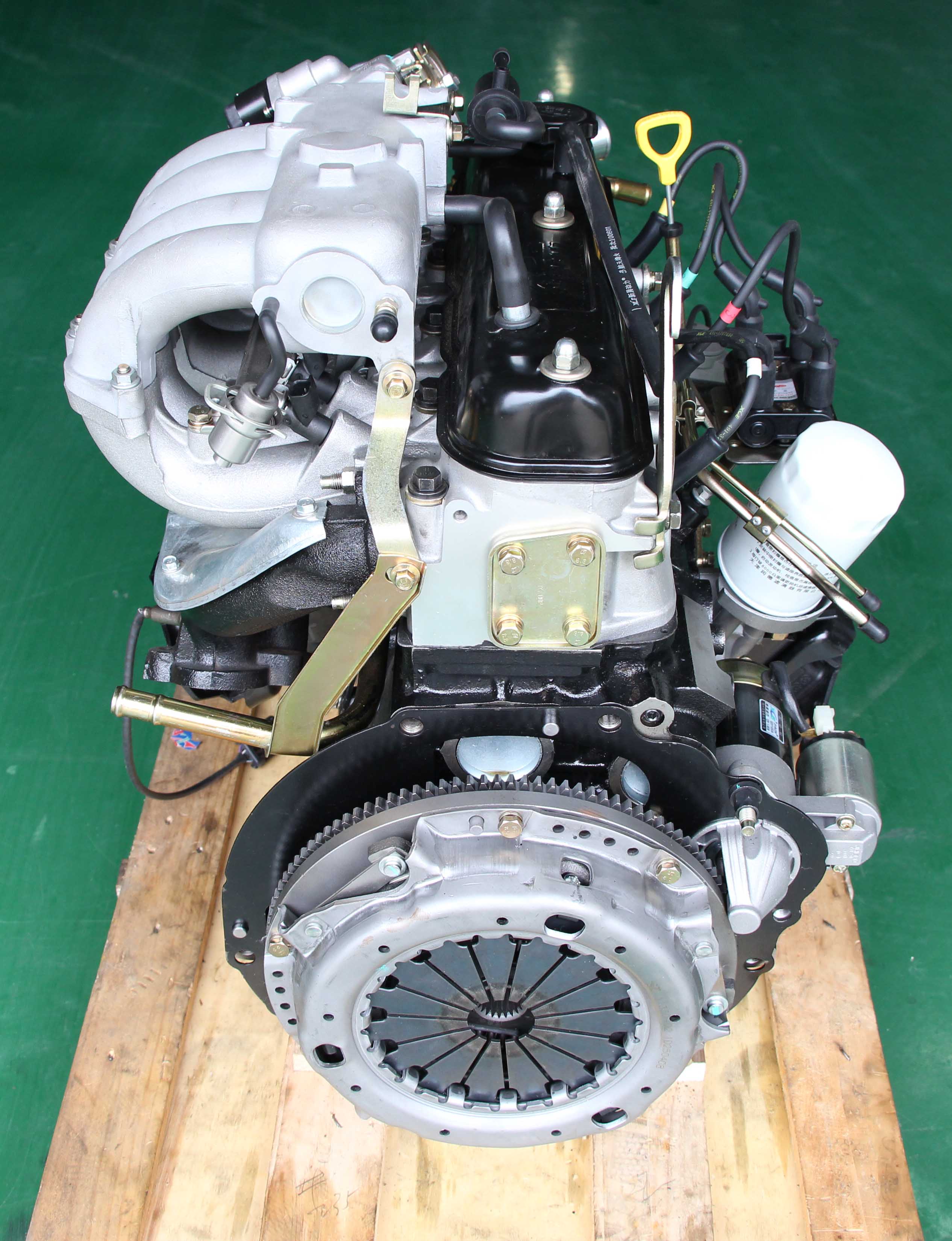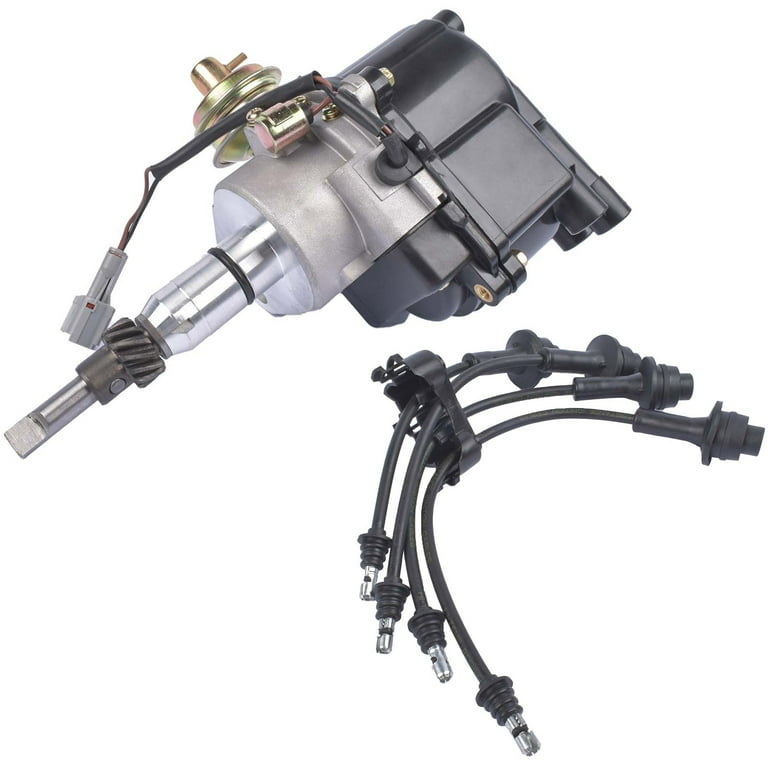What Makes the 4Y Engine Stand Out Among Other Automotive Engines
The Ultimate Overview to the Engine: Trick Insights for Every Auto Fanatic
Understanding the engine is fundamental for any type of auto fanatic, as it serves as the heart of the lorry and determines its performance. This overview offers a comprehensive evaluation of engine anatomy, types, and the mechanics behind their operation, consisting of the ingenious innovations that are improving the automobile landscape. Additionally, it emphasizes the vital nature of upkeep practices that can significantly influence an engine's lifespan. However, the complexities of engine dynamics and the most current advancements in innovation existing inquiries that warrant additional expedition. What might these understandings reveal about the future of vehicle design?
Composition of an Engine
Comprehending the composition of an engine is important for any type of auto fanatic looking to delve much deeper right into vehicle auto mechanics. An inner burning engine mostly includes a number of vital parts that operate in unison to convert fuel into mechanical energy.
At the heart of this system lies the cyndrical tube block, which houses the cyndrical tubes where combustion occurs. Piston activity within these cyndrical tubes is promoted by the crankshaft, which converts linear movement right into rotational energy. Furthermore, the camshaft plays an essential function in controlling the opening and closing of the engine's shutoffs, making certain proper air-fuel mix intake and exhaust gas expulsion.
Other important components consist of the gas system, which supplies the engine with the essential fuel, and the ignition system, accountable for starting combustion - 4y engine. The cooling and lubrication systems are likewise integral, maintaining optimum operating temperature levels and lowering rubbing, specifically
Engine Types and Configurations
A varied variety of engine types and arrangements exists, each offering distinct benefits and disadvantages customized to different driving demands and preferences. The most common engine kinds consist of inline, V, level, and rotary arrangements.
Inline engines, featuring cyndrical tubes arranged in a solitary line, are recognized for their simplicity and performance. They are commonly discovered in portable vehicles, using a balance of power and economic climate. V engines, identified by their two banks of cylinders prepared in a V shape, offer higher performance and smoother operation, making them prominent in sporting activities and deluxe autos.
Flat engines, or fighter engines, have actually horizontally opposed cylinders, which add to a reduced center of mass, improving automobile stability. These are typically seen in brand names like Subaru and Porsche.
Rotary engines, although much less usual, make use of a special layout with a triangular rotor and offer high power-to-weight ratios. They master light-weight and portable applications, mainly seen in Mazda lorries.
Each engine kind serves particular efficiency features, weight circulations, and fuel effectiveness, making certain that vehicle fanatics can choose the ideal engine setup to match their driving design and vehicle demands.

How Engines Function
Engines, no matter of their kind or setup, run on essential principles that govern their efficiency and performance. At their core, engines transform fuel right into mechanical power via a collection of regulated explosions or compressions. This process usually entails four major strokes: consumption, power, exhaust, and compression.
Throughout the intake stroke, the engine attracts a combination of air and gas. The compression stroke follows, where the mix is compressed in the cyndrical tube, raising its temperature and stress. In the power stroke, a stimulate fires up the compressed mixture (in gas engines) or the combination ignites spontaneously (in diesel engines), leading to a fast development of gases that presses the piston down. The exhaust stroke expels the spent gases from the cyndrical tube. 4y engine.
The effectiveness of an engine is influenced by various aspects, including the design of the combustion chamber, the kind of gas used, and the accuracy of the engine's components. Recognizing these basic concepts is important for cars and truck fanatics who look for to appreciate the elaborate technicians behind their vehicles, in addition to for those intending to boost efficiency via alterations and adjusting.
Developments in Engine Modern Technology
In current years, improvements in engine modern technology have actually significantly transformed the auto landscape, improving both efficiency and environmental sustainability. Among right here one of the most notable developments is the growth of turbocharging and supercharging, which permits smaller engines to generate better power results without compromising gas performance. This has actually brought about an increase in the popularity of downsized engines, supplying producers with the capacity to fulfill rigorous exhausts guidelines while maintaining performance standards.
In addition, crossbreed and electrical powertrains are improving the engine standard. Crossbreed check my site systems incorporate interior burning engines with electrical motors, enhancing fuel usage and lowering discharges. Fully electrical cars (EVs) get rid of the combustion engine completely, relying on sophisticated battery modern technology to provide instant torque and excellent velocity.
Furthermore, the integration of expert system and artificial intelligence in engine administration systems enables real-time optimization of performance parameters, boosting effectiveness and responsiveness. Technologies such as variable valve timing and straight gas injection further improve burning procedures, maximizing power outcome while reducing waste.
As the vehicle industry proceeds to advance, these developments in engine modern technology will play an essential duty fit the future of flexibility, prioritizing both efficiency and sustainability.
Maintenance Tips for Enthusiasts
Keeping an engine is as important as the technologies that improve its performance. Regular maintenance not just lengthens the life of your engine yet likewise makes certain ideal efficiency.
Change and check air filters occasionally to guarantee appropriate air flow, which is vital for combustion effectiveness. A stopped up air filter can bring about lowered efficiency and increased fuel consumption. Similarly, keep track of the coolant degrees to stop getting too hot, and change coolant according to the solution read the full info here routine.

Verdict
In final thought, an extensive understanding of engine composition, kinds, and auto mechanics is vital for automotive lovers. Normal upkeep practices, consisting of oil changes and air filter checks, are important for ensuring ideal engine performance and long life.

Engines, regardless of their type or setup, operate on essential concepts that regulate their performance and effectiveness. In the power stroke, a stimulate ignites the compressed mixture (in gasoline engines) or the mixture ignites spontaneously (in diesel engines), resulting in a fast growth of gases that pushes the piston down.In recent years, developments in engine technology have considerably transformed the automotive landscape, enhancing both efficiency and ecological sustainability.